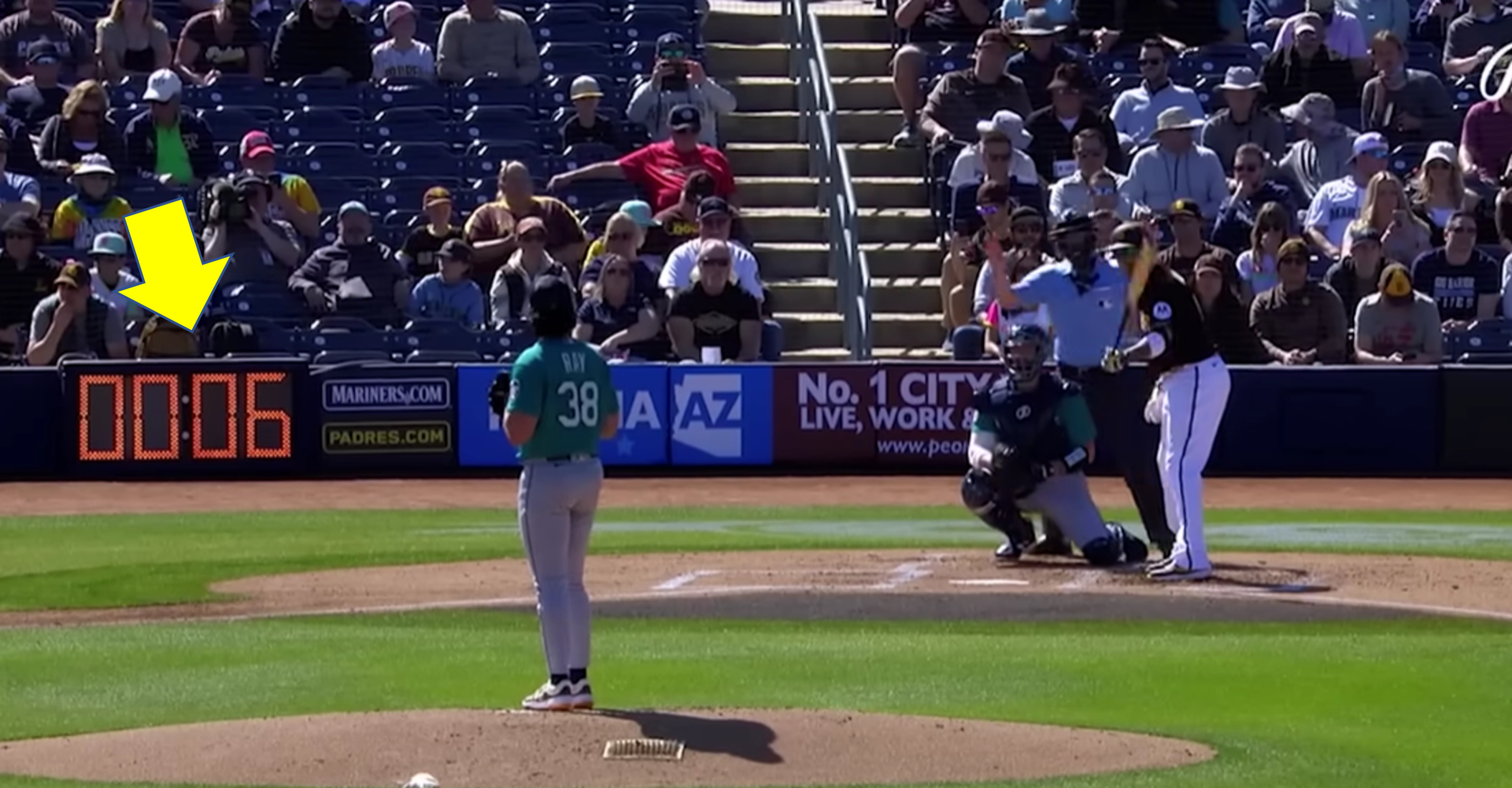
If you’re a baseball fan, chances are good you’ve already seen a game in this new 2023 season on TV or in person. And maybe you’ve heard one on the radio. Baseball just isn’t a game in America – it’s an institution. Invented way back in the mid-19th century by Abner Doubleday.
Over the years, it has been inextricably tied to radio – and for good reason. The first known play-by-play broadcast was on KDKA in 1921, a game between two teams that exist today: the hometown Pirates vs. those cross-state Phillies. And as we know, baseball announcers turned out to be among the best broadcasters of all time – Vin Scully, Red Barber, and of course, President Ronald Reagan.
But today’s post isn’t about radio broadcasting baseball games, as it has dutifully done for more than a century. It is about evolving a medium, a platform, an entertainment outlet. That’s baseball. And radio. And one is evolving faster than the other.

My friend, Buzz Knight, was more timely on the topic than I was. He wrote a great piece the other day in Radio Ink: “What Radio Can Learn From Baseball’s Rule Changes.” In case you have somehow missed it, baseball has introduced long-awaited changes in its rules this year – and just a few games in to this new season, they are already being noticed.
A pitch clock (the game moves much faster), the bases are bigger (more base stealing attempts), and the inability to stack defenses on one side of the diamond (more hits) are all in effect.
Buzz boils down the wisdom of MLB’s recent moves in three (not-so-easy) steps:
- Listen to your audience
- Be transparent
- Take risks
For MLB, this has proved to be an arduous task. Change can be uncomfortable, even painful. Hearing what fans think isn’t always pretty either. And then there’s the awkwardness that sometimes comes with showing your cards, often revealing things you’d rather fans, sponsors, and even the players didn’t see.
In the case of these sweeping rules changes for MLB, it required a disciplined approach: a ton of research, testing the proposed changes, and getting all the various constituencies – the players, the owners, and yes, the fans – onboard and open to the reality that baseball had gotten boring.
 All of this was discussed on the brilliant podcast from the New York Times, “The Daily,” last week in a great episode called “The Plan to Save Baseball From Boredom.” Reading Buzz’s article and listening to this episode from Michael Barbaro and Mike Schmidt set the table for me. This fast-moving 20 minute show from “The Daily” is a short course in change for a game long in need of re-examination and reform.
All of this was discussed on the brilliant podcast from the New York Times, “The Daily,” last week in a great episode called “The Plan to Save Baseball From Boredom.” Reading Buzz’s article and listening to this episode from Michael Barbaro and Mike Schmidt set the table for me. This fast-moving 20 minute show from “The Daily” is a short course in change for a game long in need of re-examination and reform.
Just like broadcast radio in the U.S.
The hosts explain that in order to “game the game,” defensive strategies led to less base-running and more reliance on waiting for that majestic home run to clear the bases – maybe good for player stats, but not-so-good for fans sitting in the stands often for 3+ hours.
Similarly, the tricks radio programmers rely on to take advantage of the “PPM rules” have very much led to the same type of fan-unfriendly situation in radio: two LONG stopsets every hour, shorter, predictable playlists, and of course, less interaction with fans. To save money on dayparts deemed less important by radio sellers and advertisers, personality and syndicated weekend shows have been replaced by efficient voicetrackers, or worse, one song after another, separated by repetitive and bland production pieces.
Here’s a key segment from “The Daily” episode where I have deleted some words and added (in bold) others:
“Baseball Radio is facing a semi-existential threat in terms of its appeal to fans. The game medium has become not only too long, over-commercialized, but too boring.”
Not all the analogies between baseball and radio hold up. Major League Baseball is an organization with a commissioner – a czar – who ultimately reports to the team owners. That makes it different from radio where there is no centralized leadership.
In professional baseball, there are 30 teams with as many owners. They are all incredibly wealthy, very opinionated, self-assured, and often of the belief they know what’s right and their peers don’t. That makes it very similar to radio.
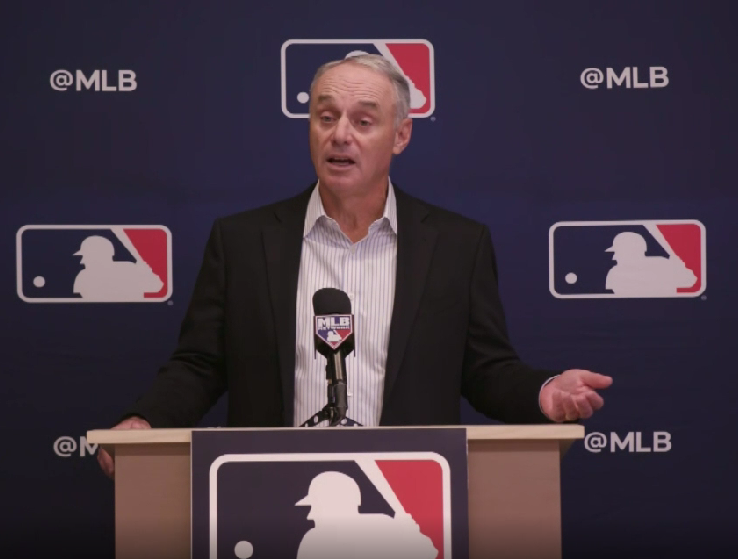
In order for MLB to effect these broad rule changes, “The Daily’s” Barbaro and Schmidt tell us it took seven years of planning, scheming, lobbying, and testing to pull it off. Of course, it started as all media and entertainment plans should – with audience research. The Commish – Rob Manfred – explained it on the show:
“We did fan-based research, and it was consistent over a period of years that fans wanted a game, brisker pace, more athleticism, more balls in play, and so they wanted that best form of baseball back.”
That didn’t mean testing buttered popcorn versus caramel corn at concession booths or which kids’ activities scored the highest ratings. It meant asking the hard questions about the game itself. Why the tune-out? Where are the pain points? What other sports are executing better? And what’s in it for fans?
There is no guarantee these rules changes will spark a turnaround for baseball – in the TV ratings, in attendance, in merch, and in revenue. But the statistics none of us sees is the number of former fans that left baseball long ago because of declining user experience. By not addressing its obvious and inherent problems, baseball was being overshadowed by the other more fast-paced sports – football, basketball, hockey, and of course, soccer.
Now none of us knows the particulars behind MLB’s research, but the rules changes starting this season are logical, sensible, and appear to address baseball’s problems. Like any entertainment outlet steeped in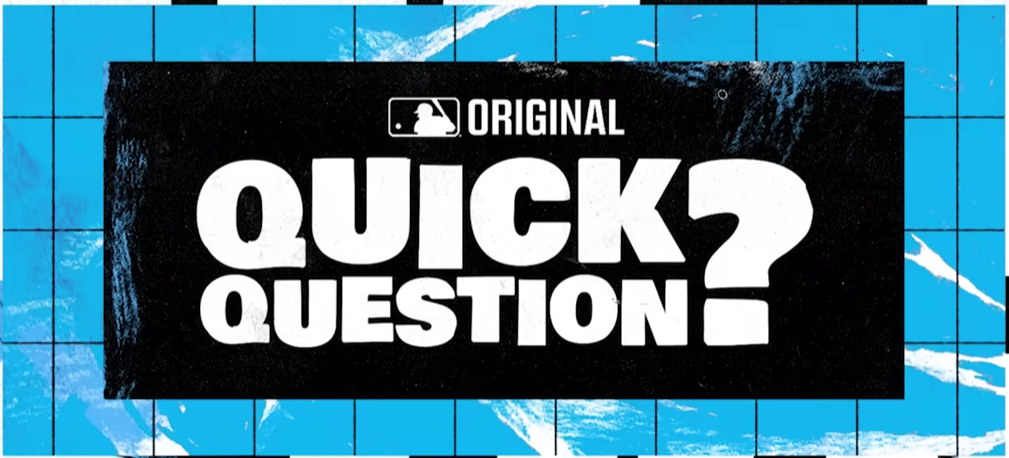 tradition – “it’s the way we’ve always done it” – change doesn’t come easy – to baseball or to radio.
tradition – “it’s the way we’ve always done it” – change doesn’t come easy – to baseball or to radio.
In order to reinvent itself, baseball has had to face up to its hard challenges, analyze its fundamentals, and make necessary changes. And then market those actions with “explainer” vehicles like its “Quick Question” series. These short videos are perfect for communicating the “why’s” of MLB rules and other questions that come up.
Here is the Times’ Mike Schmidt on why rules changes take time, often moving at “Congressional speed:”
“Baseball is not something that lends itself to new, cutting-edge changes. It’s a sport where the players are set in their ways. And fans seem to have opinions about everything and want to debate each other on who the best players are and when the best times in baseball history were.”
That reminds me a lot of radio, a medium featuring entertainment and information that’s been around a century, but is now showing signs of rust….and new competition. Hot off the presses is our annual list of reasons why some of radio’s biggest fans are listening less now. This year in Techsurvey 2023, 14% of the entire sample tell us they’re reduced their time spent with broadcast radio (about the same as usual). We give these people a long list of possible reasons why. And on the chart below, you can see the main drivers behind less radio listening:
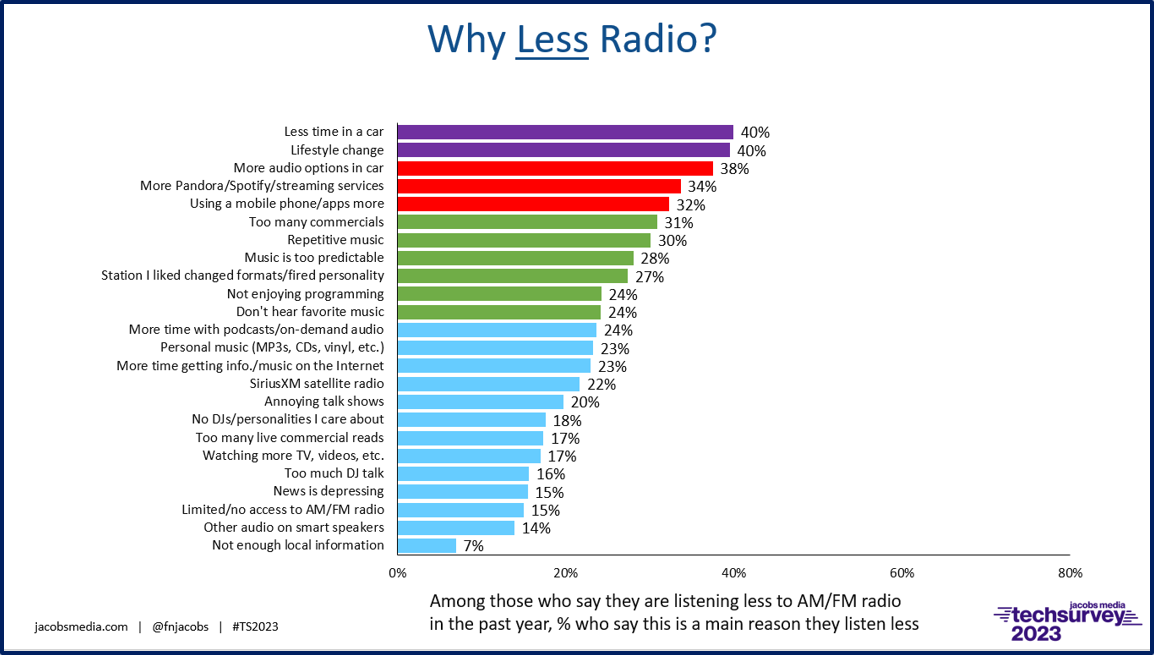
There’s a lot here. In purple, it’s the fumes of COVID – people spending less time in car (the lowest since the pandemic began), and those whose lifestyles have changed (a move, graduation, retirement, etc.). Then comes the onslaught of competition (in red), including more choices in cars, DSPs like Spotify, and content on mobile phones. Those outside forces are competitive issues, often sidestepped in station perceptual research.
But it’s the neatly stacked green bars that would keep the Commissioner of Radio (if there was one) up at night. The torrent of commercials, repetitive and predictable music, and format and personality changes are elements Rob Manfred would suggest are in dire need of addressing by radio’s powers-that-be.
But Major League Baseball has a hierarchy, and a system that actually can be changed. Radio does not.
If I was in position of authority in radio (and no, I am not), I’m thinking that an industry task force might be in order, made up of a representative group of owners from big and small markets – just like baseball. And that group ought to actually study the problem – conduct research, make recommendations, work all the various stakeholders, test drive the concepts, fine-tune them, and put them into action. Efforts to get all the owners singing out of the same hymnals would obviously be a sticking point, but Manfred had that same challenge with even wealthier captains of their industries.
That’s essentially what MLB did. As Manfred told Barbaro and Schmidt, he and his staff had to work the room. And they used minor league baseball to determine whether these new rules could actually work – 8,000 games just to be sure. Radio would have to test its revamped approach as well. Given the recent spotlight on and challenges AM radio is facing, this might be a great venue for radio to run its tests.
And as importantly, MLB is effectively marketing its rules changes – with video, audio, during games, via social:
There are many different versions of these “Quick Question” videos from MLB – some funny, others celebrity-driven (like the Bryan Cranston example), and some straight-forward. All in all, not just fans seems to know about these rule changes. I hear from so many casual sports fans and those who haven’t watched baseball in years (or ever) who have heard about these rules changes. To their credit, MLB has made their problems – and their solutions – a conversation. They aren’t daunted by admitting the game is slow (although Manfred won’t cop to boring).
MLB also realizes if they don’t aggressively market these important rule changes, it will take even longer for perceptions about the game to change. As it is, many of those who gave up on baseball years ago aren’t just going to return to the fold. But it’s a start – the beginning of a years-long effort to reshape the game and the way fans take it in.
Radio broadcasters can learn from the “National Pastime.” I believe our Techsurvey research is spot on when it comes to identifying “what’s wrong?” By doing little-if-anything to address these obvious problems, radio continues to telegraph to audiences and advertisers it just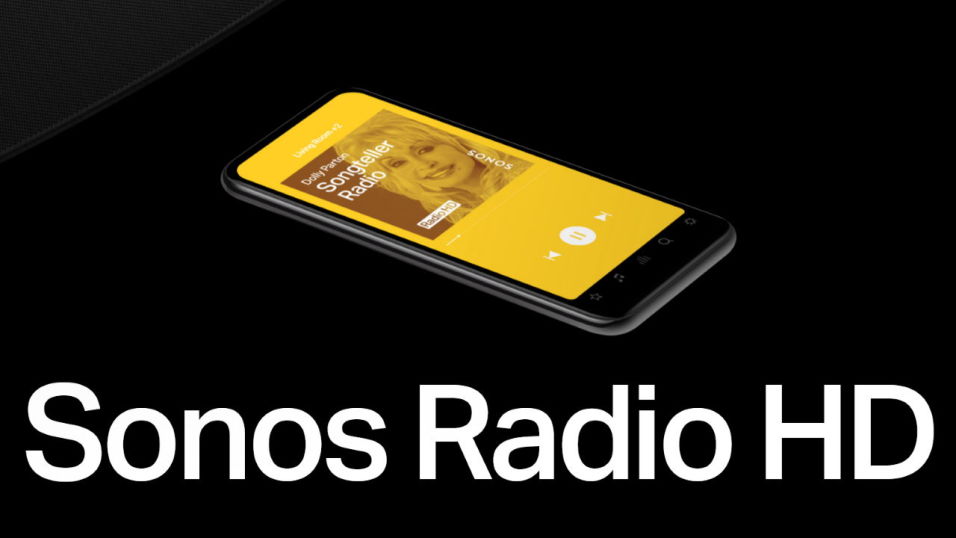 doesn’t get it. And that gives all its competitors more opportunity to capitalize on these unaddressed radio weaknesses.
doesn’t get it. And that gives all its competitors more opportunity to capitalize on these unaddressed radio weaknesses.
Over the years in this blog, I’ve talked about all the other players – Amazon, Apple, Spotify, Slacker, Sonos, TuneIn, and of course, SiriusXM who always include the “R-word” in their content platforms. I am convinced the public doesn’t hate radio. But they are critical of how it has been allowed to regress and erode.
This goes to the heart of this year’s AM dashboard crisis. By not facing up to its problems and limitations, broadcasters have ceded AM’s future to automakers who would rather stop investing in manufacturing an AM tuner when it gets so little in return. FM broadcasters would be wise to try to head the next chapter off at the pass.
Major League Baseball has provided a template for change, especially for a storied entertainment medium that has long-needed reform and reimagining. Has the baseball brass done all the right things? Will they need to re-evaluate, revisit, and reassess? Of course. But that’s how things work in the real world of mass appeal entertainment.
And when changes are made, they’d better be noticeable improvements. I attended a spring training game last month, and the difference in pace was refreshing. You actually have to pay attention to what’s going on in the field because you might miss something. For a change, baseball has some FOMO. These rules promise to literally be a game-changer for baseball. And that was the goal from the beginning.
How can radio broadcasters take advantage of this MLB case study? The industry needs to truly make the effort to speak in one voice, put its differences aside, and be clear-eyed about recognizing and solving its existential problems. It’s a painful process, but so is business as usual, as each radio company applies its own proprietary strategy. But aren’t we at the point where the radio broadcasting industry is bigger than a single owner? In order to effectively compete, broadcasters will have to think about sweeping changes that run counter to the way they’ve conducted business for so many years now?
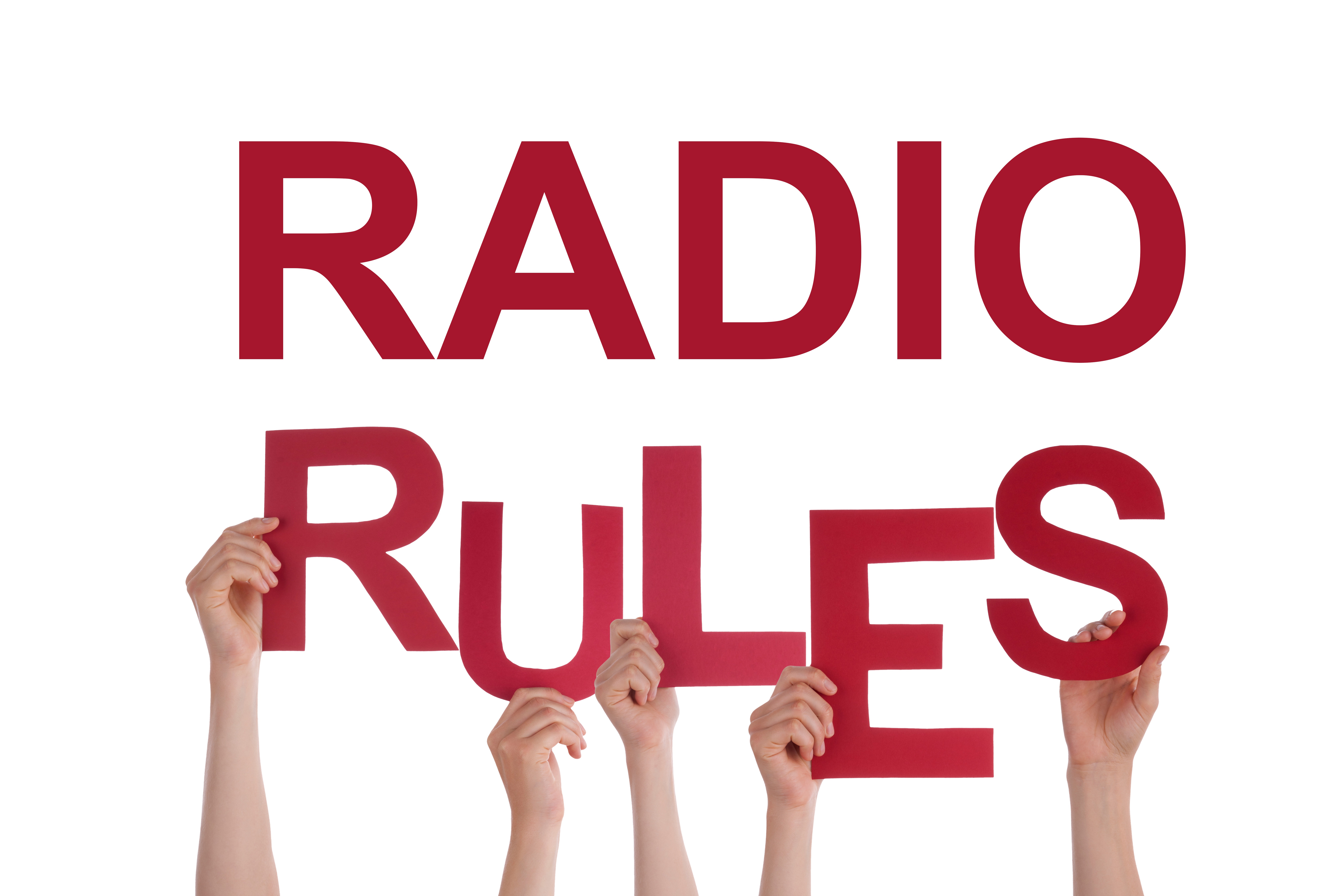
For too long now, broadcasters have made up their own “Radio Rules,” regardless of how consumers felt. Long bloated stopsets, squeaky tight “safe lists,” no hosts during nights, overnights, and weekends. And unexplained format changes and personality RIFs and terminations have all conspired to hurt radio’s user experience. And yet, this is the way the industry has operated – for decades – despite declining ratings and lower revenues.
In public radio, it’s very much the same. Unlistenable pledge drives are yielding lower financial results, while continuing to antagonize the medium’s most loyal listeners. Again, traditions are hard to challenge and ultimately break.
In order to win back the confidence and loyalty of audiences and advertisers, these “isms” need rethinking because they are no longer working. More transparency would be a good start, but so would decision-making that actually has the radio fan in mind. For decades, broadcasters have traditionally made decisions in their own best interests without a whole lot of consideration for listeners. Success in the entertainment industry today demands a more concerted focus on fans.
MLB consultant and former GM, Theo Epstein, recently noted the process began with getting input from all quarters – fans, players, owners, and even an umpire representative. Wide-ranging feedback from all stakeholders is a smart starting point.
The baseball season is a long one – 162 regular season games, plus spring training, the playoffs, and the World Series. But the season mercifully ends each year, giving all its stakeholders a chance to take a breath and consider the season ahead. In radio, it’s 24/7/365, a continuum that makes it more difficult to stop, analyze, and make changes.
That’s too bad, because a 7th inning stretch might do radio some good.
Postscript: My Detroit Tigers started their 2023 season by dropping their first three games to the Tampa Bay Rays. It’s already looking like a long season, but at least it will move faster. – FJ
A tip of the old English “D” baseball cap to Dave Beasing.
And to listen to Buzz Knight’s fine “Takin’ a Walk: Music History on Foot” podcast, go here.
- The Guy In The Next Car - May 6, 2025
- 5 Lessons For Radio From The Apple Watch - May 5, 2025
- DJs And Baristas: Can They Save Their Companies? - May 2, 2025




Fred: 1st Buzz is one of my all time heroes. Smart, intuitive, and all round good guy. 2nd this is one of the best you have done. Maybe because I totally agree with your take. Now, will anyone listen???. Well done my friend. Thanks
Many thanks, Jay. And I’m a big fan of Buzz, too.
Fred you outdid yourself with today baseball article. Now if you can only do something with the Tigers this year. It’s going to be a long, long season (I’m a Yankee fan). But as we used to say in Brooklyn, “Wait to next year”.
Appreciate it, Steve. And like you, I’m already feeling a little down about those bengals. Not the start we wanted to see – and it’s April freaking 3rd!
One thing you left out of the baseball example is that they tested all of the changes (and more) in the minor leagues before bringing them to MLB. They had a really good sample of how the changes would affect the game, and adopted some and rejected others.
Where are the minor leagues in radio? There are some vibrant smaller owners trying new approaches (One Putt for example). Too often, those small markets are simply repeaters for major broadcast groups with little local input or origination. The same is true of the “also ran” stations in larger markets that serve more as flankers and add-ons to both local and national buys. Those are the places where innovation used to take place. We need those stations as innovators, not jukeboxes, again.
Love this one, Fred!!! What a great analogy. I just hope some higher-up takes all of this to heart and we finally see some movement. Great blog today, regardless.
P.S. – and my Phils did the same after such a fantastic finish last year. Already 0-3 and giving up 29 runs in 3 games. As you said, at least the pain will be quicker!!
OK, John, it’s only two games, but the Tigers look much better. What a difference 48 hours make! Thanks for the kind comment. BTW you’d be a great Commissioner of Radio.
Knowing what a fan of both baseball and radio you are, I was looking forward to your take, Fred. Wasn’t disappointed.
According to my informal research sample of about a half dozen high school baseball players — who love the sport and rotate through the backseat of our family car — they consume the MLB (mostly highlights) almost exclusively on-demand, on their phones. These rule changes won’t make them want to sit through entire games. But unlike baseball, radio can make BIG wholesale changes that the more “traditionalist” fans would also love.
Dave, thanks for turning me onto this, inspiring for radio. I like your survey – it’s a good sign for baseball (and gives me hope for radio).
To me,the game of baseball hasn’t changed much since my father watched and listened to games when he was alive (he died in 1988). I think the fans has changed as they are used to the fast pace of basketball,soccer and hockey.
Our society has become fast-paced,so the old game of baseball is not suited to their viewing expectations.The game was invented in a slower time when most people traveled by horse to their destinations.
If you want to see a slow paced game,watch golf. I wouldn’t doubt that there are some people who are not happy with the game and want it speeded up.
MLB on the radio is something that’s traditional . For the Los Angeles to be announcing their away games from a remote location is horrible and mind boggling . Baseball is best when listening on the radio. MLB should force the Angels to have their radio team travel with the club..
Leonard, when it comes to baseball on the radio, you and I are on the same page.